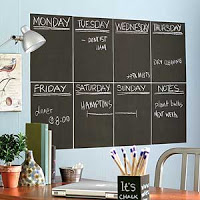Freelancer Panic – Not Enough Work vs. the Terror of Commissions
For me, freelancing means an ever oscillating mood of euphoria at having been commissioned to write something, despair when no work seems to be coming in, and then fear and panic while writing a piece or waiting for feedback. The terror of not having work is replaced by the terror of having work. Sometimes sleep is a thing other people do. I am getting better at this. In the meantime, you know I’ll hit my deadline because panic is a wonderful motivator.
The Brain of a Freelancer – Where are the Studies?
I have, like many freelancers, perfected the skill of a rotating filing system of tasks within my brain, each with a brightly coloured sticky note poking up above it clamouring for attention. Some days these colours are more pastel in nature and so I can relax, knowing there is work coming in, that it is achievable, that I will be paid for it because these are regular and reliable clients, and that I have time to devote to the other aspects of life outside of work (yes, there are some, so I hear).
Other days the rotating file system feels like a merry-go-round with devilish clown faces in bright neon accompanied by some horrific wurlitzer spinning round and round on an axle that looks fearfully precarious. Picking out just one task on these days can be something of a challenge, requiring all the powers of concentration to perform the mindbending feat of slowing down that whirligig.
Advice for Myself, and You, Fellow Freelancer in Panic Mode
Perhaps you’re wondering why I’m telling you all this and feeling that you’re wasting your time (again). Fear not, there’s a point to it all. Namely, that I have some tips for you fellow freelancers accompanied by the evil spinning cognitive slideshow.
1. Don’t wait for normal to get things done – there is and will never be a normal month for a freelancer. Own this. If you can’t, get a job where someone else makes your decisions for you. I hear banking is nice.
2. Do your taxes as you go along – seriously. If you aren’t doing this already, create a spreadsheet on googledocs with headings for each kind of expense your accountant wants you to fill out for deductibles at the end of the year. Make time each week to go through receipts; give yourself half an hour and, if you have no receipts that week, you have an extra half an hour to play with, win win.

This pumpkin-spiced cupcake, sitting atop my first novel, is a business expense. Deducting my cake, and eating it.
3. Arrange a dedicated block of time to contacting past clients – it pays for itself. Chasing new work is a real time-suck so make sure not to neglect past clients and remind them that you are around should they need someone for their new project. A polite email every so often will not only make you feel like a better, more connected person, it may drum up some business that you didn’t have to actively seek out and go through the process of working out a client’s trustworthiness and idiosyncratic desires for formatting, platform, delivery, tone and so forth. Let’s say the last Friday of a month is ‘reach out to past clients’ day. That’s next Friday folks. Who are you going to get in touch with?
4. Take time to work out how you work best – this is not wasted time. I have spent hours, if not days, looking at links to new apps that promise to organise my freelancer’s diary and schedule and make me more efficient and organised and stress-free. Then I realised that I work best when I have an overview, all the time, and that this needs to be away from my computer, visible, large enough and detailed enough for me to comprehend quickly and easily but not so large as to loom over me every day.
 This currently means lots of paper lists tacked to walls, post-it notes with days of the week stuck next to my kitchen sink and a plan to acquire chalkboard paint and create myself a chalkboard office wall on which I can write, draw, imagine and organise all with ease. If there is an app. that works for you then stick with it, don’t be tempted by every new thing that comes along as you will waste time figuring out that it does not work for you when you already have a perfectly good system set up.
This currently means lots of paper lists tacked to walls, post-it notes with days of the week stuck next to my kitchen sink and a plan to acquire chalkboard paint and create myself a chalkboard office wall on which I can write, draw, imagine and organise all with ease. If there is an app. that works for you then stick with it, don’t be tempted by every new thing that comes along as you will waste time figuring out that it does not work for you when you already have a perfectly good system set up.
5. Take a day off – it’s sunny out, did you notice? Remember why you became a freelancer; probably because you wanted to have freedom from the traditional 9-5 and be able to take days off when it was beautiful out and then work rainy weekends to get ahead or caught up. What happens instead is that we work every day, every week, just a little bit because there is always something else to do, some personal project that got neglected because of a new clients, new jobs to apply for, profiles to update, emails to send, invoices to create. These are all important but so is some downtime. Taking a day in the sunshine in the middle of the week when everyone else is scuttling about getting their pre-packaged lunches to take back to their desk in an airless room will make you really appreciate how great it can be to work for yourself, when you want. You can get back to work the next day with a renewed respect for how you have structured your life, the choices you’ve made, the successes you’ve had and the fact that this is work you love to do and work that allows you to have the life you have but keep forgetting you have.
When you work relentlessly, often up until the small hours in case that email comes in from a client overseas, and then wake early and immediately wonder if you’ve heard back from someone a few hours ahead of you <---- not healthy. Not sustainable. Take a day off, realise that the world has not ended and really think about how you are still a freelance writer even when you're not writing every single minute of every single day. Yes this is, ostensibly, advice for myself. What tips do you have for being a sane and successful freelancer? Let me know in the comments below and be sure to connect with me on Facebook to share freelancer success stories (and tales of woe!).






{ 0 comments… add one now }
{ 1 trackback }